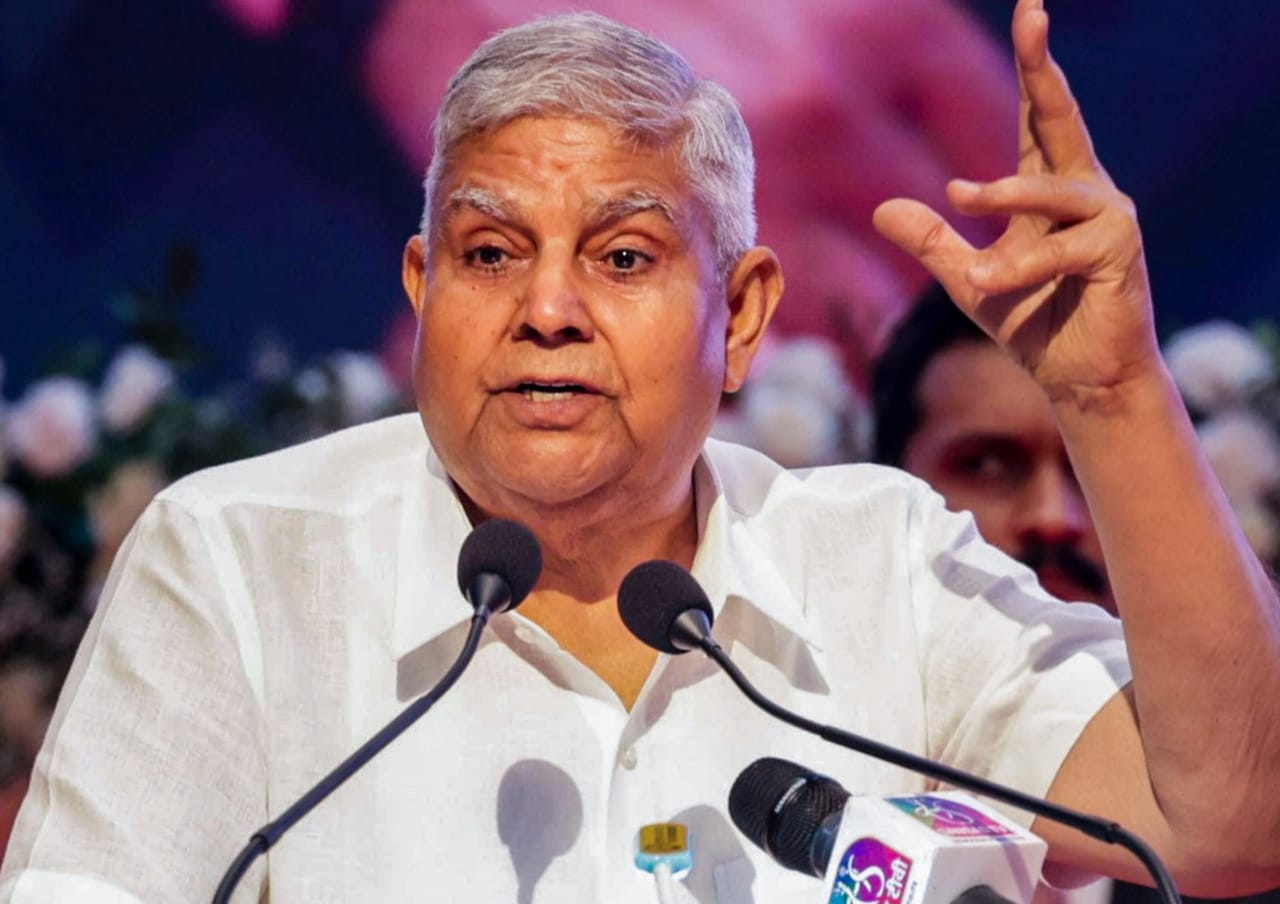
New Delhi:
Vice President Jagdeep Dhankhar tendered his resignation late on Monday, citing health reasons, but new revelations suggest senior Union ministers tried to dissuade him hours earlier. Union Health Minister and Rajya Sabha leader JP Nadda and Parliamentary Affairs Minister Kiren Rijiju reportedly shared Prime Minister Narendra Modi’s displeasure over Dhankhar’s handling of an impeachment notice against Justice Yashwant Varma.
According to sources, the call came shortly after Dhankhar had informed the Rajya Sabha that he had received, on parliamentary grounds, an Opposition‑sponsored notice to initiate proceedings for Varma’s impeachment. Rijiju reminded Dhankhar that “in the Lok Sabha, there is a process of building a consensus on the impeachment” and highlighted that Congress leader Rahul Gandhi had signed the motion. He then added that the “PM is not happy about the sudden development”.
Despite this advice, Dhankhar maintained that he had acted “well within the rules of the House”. The exchange reportedly influenced the government’s withdrawal from a second Business Advisory Committee (BAC) meeting scheduled for 4.30 pm that day, a move interpreted by some as a snub.
Dhankhar’s sudden resignation came after his unannounced 9 pm visit to Rashtrapati Bhavan, where he met President Droupadi Murmu and formally submitted his resignation under Article 67(a) of the Constitution, effective immediately. His announcement surprised Parliament as the Monsoon Session was in full swing.
Earlier in his letter, Dhankhar cited the need “to prioritise health care and abide by medical advice” but did not elaborate on his medical condition. President Murmu has accepted the resignation, and the Election Commission has officially made preparations for the vice presidential election.
In the aftermath, speculation is rife about the real reasons behind his departure. Opposition parties claim the move involves deeper political motives. The Jharkhand ruling coalition alleged that the resignation was triggered by interference in parliamentary proceedings, particularly over an aborted call for discussion on Army’s Operation Sindoor. Additionally, Trinamool Congress MP Kalyan Banerjee claimed Dhankhar was forced out under threat of impeachment if he did not comply with the Centre’s approach.
Responding to these accusations, JP Nadda dismissed any suggestion of discord, asserting that he and Rijiju were engaged in parliamentary commitments during the BAC meeting and had informed the Vice‑President’s office in advance.
The resignation has also sparked debate over whether Dhankhar’s exit marks a diminution of the Vice‑President’s constitutional authority. Congressional leaders criticised the lack of customary farewell and questioned why the office was portrayed as a “non‑post,” accusing Prime Minister Modi’s government of sidestepping institutional norms.
At age 74, Dhankhar is the first Vice‑President to resign mid‑term. His letter praised his tenure, thanking the President, the PM, the Council of Ministers and MPs, and described the role as a privilege and honour.
The Rajya Sabha has not observed any directive compelling Dhankhar to vacate his official residence immediately; the government clarified that no such order has been issued.
With Parliament in session and political pressure mounting, attention has swiftly shifted to the Vice‑Presidential contest. Union Home Minister Amit Shah and other Cabinet colleagues have met with Lok Sabha Speaker Om Birla and others to initiate the selection process. The NDA currently holds a majority in the 782-member electoral college, giving it a clear advantage in choosing the next officeholder.
Amid the evolving narrative, one clear outcome remains: Jagdeep Dhankhar’s brief but turbulent exit marks a rare and dramatic disruption in India’s parliamentary framework.